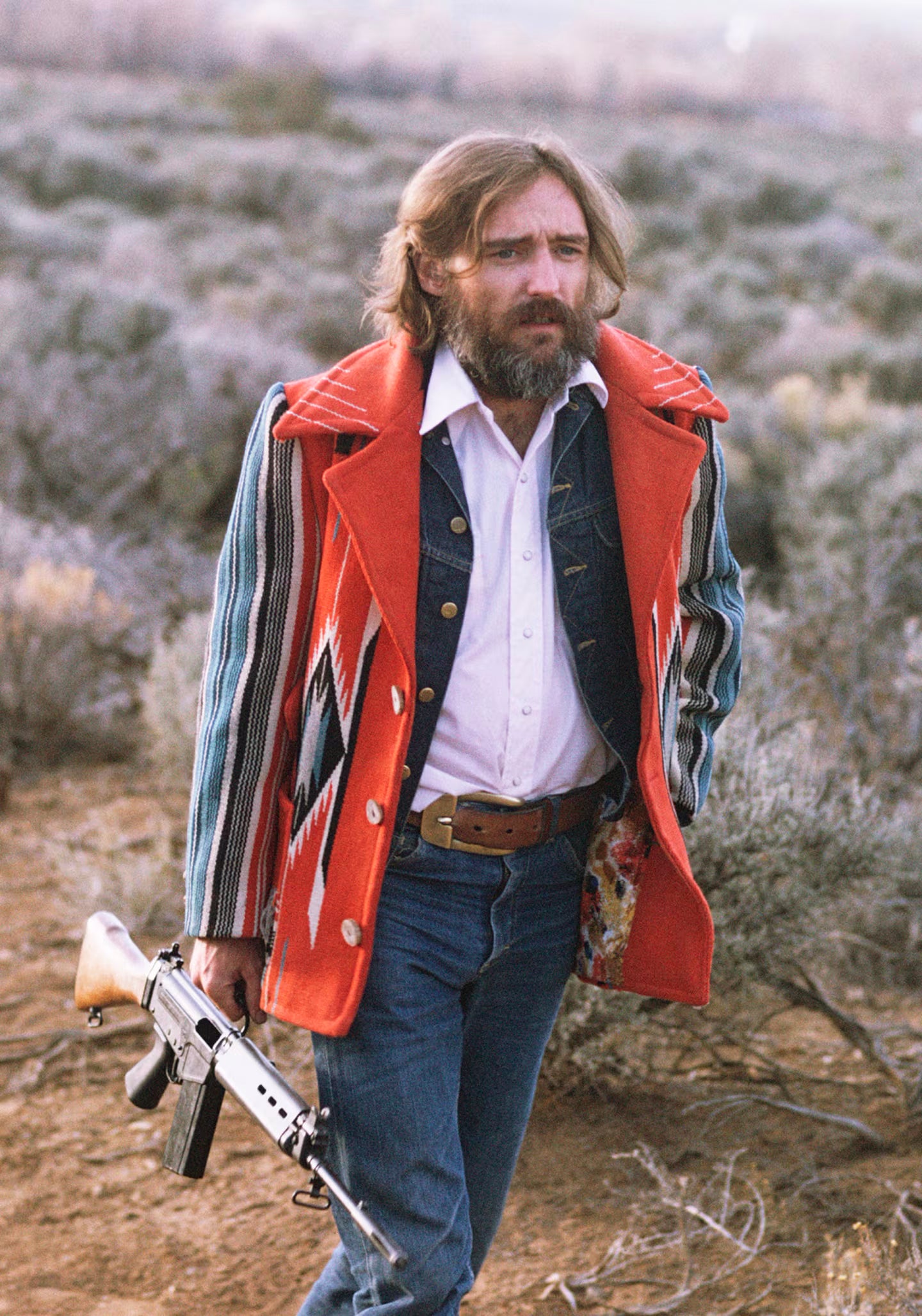SIGN UP
If you like what we do stay updated by following our newsletter. We will never spam you or sell your address.
Your cart is currently empty. Click here to continue shopping.
This option is currently sold out.
Vintage Black premium weight organic cotton TSPTR tee with water based ink print
"We were all going to hold hands, take LSD, find God and what happened? We ended up at the drug dealer’s door, carrying guns and in total madness”
Dennis Hopper's deconstruction of the demise of the Sixties countercultural dream came shortly after the close of America's most tumultuous decade. In one scene of Lawrence Schiller and L.M. Kit Carson’s meta-documentary “The American Dreamer” (1971), Dennis Hopper is at the Steenbeck machine, editing a moment in “The Last Movie” (1971). His character is surrounded by mock camera equipment made out of sticks, wielded by people who believe they are making a film, except the violence is real. For Hopper, that scene epitomises an ongoing bad trip. After the epochal success of “Easy Rider” (1969) he had been treated by Hollywood as the second coming of Orson Welles. He was determined to prove that he was a real artist, but “The Last Movie” was frustrating him. To top it off, his marriage to singer Michelle Phillips (of the Mamas and Papas) had crashed after eight days.
Though Hopper performs a version of himself, it nonetheless exposes his fragility, narcissism, and innocence, his ambition to be an artist banging up against his lack of any vision. Shots of him editing, drinking, shooting guns, and engaging in sophomoric conversations with assorted visitors, staff, and hangers-on fade into solemn soliloquies in the desert. Bearded, solemn, and resembling the recently in the news Charles Manson, he intones tidbits like, “It’s very difficult at times, if you believe in evolution, not to believe in revolution.”
Made in Portugal








